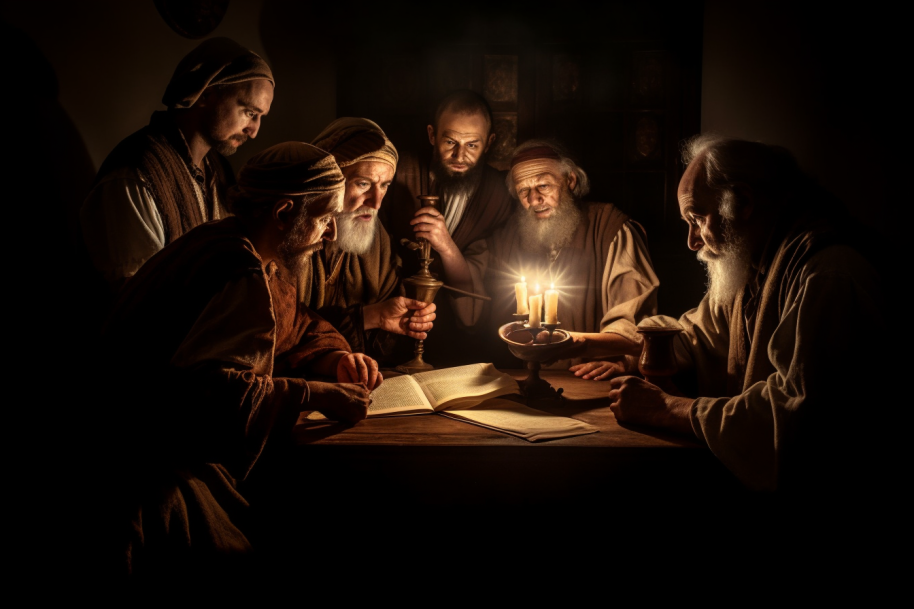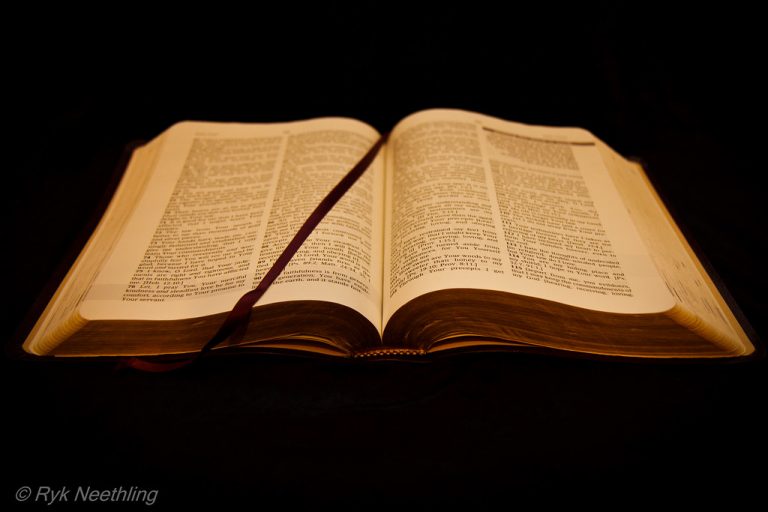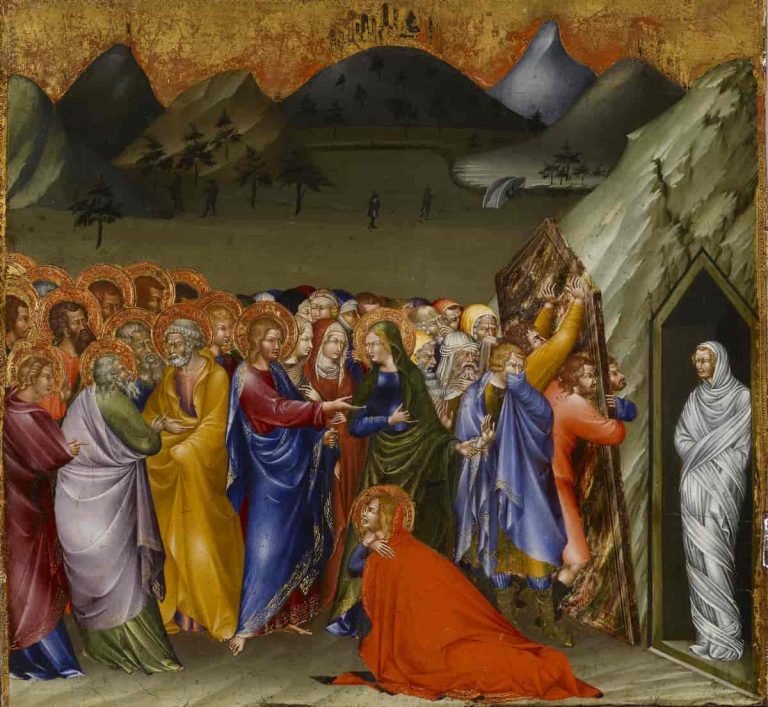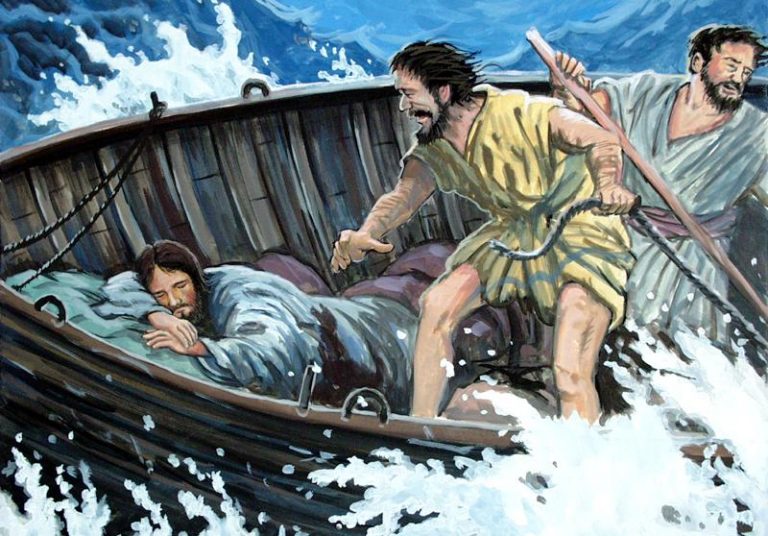Who Wrote Genesis? Discovering the Enigmatic Author Behind the Book
Who wrote the Book of Genesis? It’s a question that has puzzled scholars and theologians for centuries.
As one of the foundational texts in Judaism and Christianity, Genesis holds significant weight in shaping our understanding of these faiths’ beliefs and worldviews.
And yet, despite its importance, there remains considerable debate surrounding its authorship.
Some might argue that it doesn’t matter who penned this ancient text – after all, isn’t it the message that counts?
However, as we dive into the various theories about who could have written Genesis, we’ll find that understanding its origins can enhance our appreciation for the work. So buckle up; let’s embark on an intriguing journey through history to explore possible answers to this age-old mystery.

Did Moses Write Genesis?
There has been significant debate surrounding the authorship of the book of Genesis. The traditional belief and Jewish and Christian scriptures attribute their writing to Moses, a prophet who played a crucial role in establishing Israelite religion and history.
However, modern scholarship has cast doubt on this perspective, with many scholars now advocating that multiple authors contributed to Genesis’ origins over time. This change in thinking is based on various factors such as linguistic analysis, stylistic differences, and inconsistencies found within the text.
The authorship debate questions Moses’ influence on the content and formation of Genesis. While it may be tempting to accept the traditional view that he authored the entire Pentateuch (the first five books of the Bible), there are several reasons to reconsider this stance.

For instance, some passages appear to have been written after Moses’ death or from perspectives beyond his knowledge or experience.
Scholarly examination reveals distinct literary styles throughout these texts – evidence that suggests different writers were involved in their creation.
Reevaluating our understanding of Genesis allows for more nuanced interpretations and discussions about its historical context and significance.
Rather than attributing sole responsibility to Moses, acknowledging multiple contributors helps explain discrepancies within the narrative and offers insight into how ancient societies transmitted their stories orally before committing them to write. B
y considering alternative perspectives on Genesis’ origins, we can better appreciate its complexity and cultural importance without disregarding critical analysis or established religious traditions.
Evidence For Moses’ Authorship: What Are The Arguments?
Delving into the depths of biblical history, one encounters the fascinating debate surrounding the authorship of Genesis. Mosaic authorship is a traditional belief that credits Moses as the primary writer of this foundational book in both Jewish and Christian scriptures. Several arguments support Moses’ role as the composer of Genesis, which we will explore here.
The first argument revolves around literary styles found within the text itself. Throughout Genesis, there are numerous instances where phrases such as “the generations of” or “these are the records of” appear.
These statements suggest a single author collecting and compiling different sources to create a cohesive narrative – a task attributed to Moses by many scholars.
Some passages contain elements resembling ancient Egyptian writing style, further suggesting Mosaic authorship since Moses would have been familiar with these conventions due to his upbringing in Egypt.
Taking into account its ancient context, another strong piece of evidence for Moses’ involvement lies in his close relationship with God and unique position among Israelites at that time.
Considering he received direct revelation from God on multiple occasions (e.g., receiving the Ten Commandments), it seems plausible that he could have also been entrusted with recording early human history and ancestral stories leading up to his own people’s journey toward their divine destiny.
As someone well-versed in religious law and tradition, Moses would have had an unparalleled understanding of how these events fit together and shaped their collective identity – making him uniquely qualified to be responsible for penning not just Genesis but other books collectively known as Torah or Pentateuch.
References To Moses’ Writing: What Does The Bible Say?
Now, let’s dive into the intriguing world of biblical context and discover what it has to say about Moses’ influence on the writing of Genesis. The authorship debate surrounding this fascinating book is certainly a captivating topic that will leave you wanting more.
Moses’ name appears throughout the Bible as a significant figure in Israelite history, with many references suggesting his involvement in writing key portions of Scripture. Here are some examples:
- Exodus 24:4 – This verse states that “Moses wrote down all the words of the Lord.” It implies he had an essential role in documenting God’s teachings.
- Numbers 33:2 – In this passage, we find evidence that “At the Lord’s command through Moses, each was recorded,” further supporting Moses’ participation in recording sacred texts.
- Deuteronomy 31:9 – Finally, we see here a direct reference to Moses having written specific parts of Scripture when it says, “So Moses wrote down this law.”
While these verses provide strong indications for Moses playing a crucial part in penning scriptures within Genesis, it’s important to consider other factors at play. Some scholars argue that multiple authors contributed to its creation over time rather than just one individual like Moses.
They point out linguistic differences and varying perspectives throughout Genesis as potential evidence against single-author attribution. Furthermore, there isn’t explicit textual proof within Genesis itself stating outright that Moses authored it.
As you can see from exploring these different aspects related to the writing of Genesis, historical and scriptural clues paint an intricate picture of its origins.
While there may not be definitive answers or consensus among experts in determining who precisely composed every word found within its pages, understanding and appreciating the nuances surrounding its authorship debate only adds depth and richness to our experience reading this timeless piece of literature.
So next time you pick up your Bible and delve into Genesis, take a moment to reflect on the incredible journey this ancient text has taken to reach you and cherish every word.
Analysis Of Genesis: What Does It Contain?

Delving into the depths of Genesis, readers encounter a rich tapestry of narratives that have shaped human understanding for millennia. The book is laden with creation stories and biblical symbolism, spawning numerous interpretations over time.
As one delves deeper into this ancient text, the multifaceted nature of its contents comes to light, illustrating how it serves as a foundation for various religious beliefs.
The following table presents an overview of key themes found in Genesis:
| Theme | Description |
|---|---|
| Creation Stories | Two accounts: (1) God creates the world in six days and rests on the seventh; (2) Adam and Eve are formed from earth’s elements |
| Biblical Symbolism | Garden of Eden represents innocence; serpent symbolizes temptation and sin; Noah’s Ark signifies hope amidst destruction |
| Genealogies | Chronicles family lineages such as those of Cain, Seth, and Abraham to establish ancestral connections between biblical figures |
| Covenant & Promises | God makes covenants with Noah, promising never again to destroy all living creatures by flood; renews promise through Abraham by granting him descendants and land inheritance |
| Moral Lessons | Stories like Cain and Abel, Tower of Babel, Sodom and Gomorrah impart moral teachings regarding obedience, faithfulness, humility, or divine judgment |
These topics within Genesis can be interpreted both literally or metaphorically. By analyzing Genesis interpretations, one can grasp how people extract meaning from these ancient texts differently depending on their cultural context or personal beliefs.
As we reflect upon our exploration of Genesis’ content – its creation stories brimming with vivid imagery alongside profound lessons embedded within them – it becomes evident that this sacred work embodies humanity’s quest for understanding life’s origins while offering insights.
How Old Is Genesis?
Moving on from the analysis of Genesis, it is essential to delve into the age of this ancient text. The dating of Genesis is a topic that scholars have debated for centuries.
As we examine its ancient origins and attempt to understand when it was written, we must consider both internal evidence within the text and external historical factors.
Genesis dating can be quite complex due to its unique structure and composition. Many scholars believe it was not authored by a single individual but compiled from various sources over time.
This hypothesis suggests that different parts of Genesis were written during distinct historical periods, making determining an exact date even more challenging. However, most biblical scholars agree that Genesis was likely composed between the 15th and 5th century BCE.
This broad range accounts for varying perspectives on the text’s creation timeline and other cultural and historical influences at play during these times.
Considering all factors, pinning down a specific date for the writing or compilation of Genesis still needs to be discovered. While some may argue that certain sections appear older than others based on linguistic clues or thematic content, no consensus exists among experts about precisely when each part might have been penned.
Despite this uncertainty, understanding its possible timeframe helps us appreciate how people who lived thousands of years ago grappled with questions concerning human existence and our relationship with divine forces – still relevant today.
Documentary Hypothesis: What Is The Controversy?
The controversy surrounding the authorship of Genesis, and indeed the first five books of the Bible (the Pentateuch), has been a topic of scholarly debate for centuries. This contentious issue is often called the Documentary Hypothesis or Documentary Debate.
At its core, it questions whether Moses wrote Genesis and the other four books attributed to him or if multiple authors wrote them over an extended period.
A major aspect of this Documentary Debate involves hypothesis criticisms that challenge traditional views on Biblical authorship. Critics argue that linguistic differences, inconsistencies in narrative structure, and varying theological perspectives found within these texts suggest multiple authorship rather than a single writer like Moses.
For example, scholars have identified two distinct creation stories in Genesis with different styles and emphases, which could indicate separate authors. These types of textual analysis fuel ongoing debates over the historicity and origins of these seminal religious works.
The implications of this debate on Biblical authorship are significant because they directly impact how believers interpret their sacred texts. Suppose it can be demonstrated that many people contributed to writing Genesis and other parts of the Torah over time.
In that case, interpretations based on Mosaic authorship may need to be reconsidered. Moreover, understanding the cultural, historical, and literary contexts from which these books emerged would provide valuable insights into their intended meaning and purpose.
While scholars might still need to be a consensus regarding who wrote Genesis or what factors shaped its composition, one thing remains clear: exploring these complex issues will only deepen our appreciation for this foundational text’s enduring legacy across human history.
Is Genesis Reliable?
As we delve deeper into the Documentary Hypothesis controversy, it becomes increasingly important to address whether Genesis is a reliable source or not.
This question arises due to genesis contradictions and the cultural influences that shaped its creation. Author anonymity also contributes to this debate since knowing who wrote Genesis could provide more insight into its reliability.
Genesis contradictions are instances where the text appears to have inconsistencies or conflicting information. These discrepancies can be found throughout the book and often lead skeptics to question its overall credibility.
Some argue that these contradictions were intentional literary devices used by ancient authors, while others believe they may point towards multiple authorship of the text or simply human error in recording these stories over time.
Cultural influences play a significant role in shaping any religious text, including Genesis. The stories and teachings within this sacred Scripture reflect the beliefs, values, and traditions of the society from which they emerged.
While some adherents view these cultural elements as enriching their understanding of God’s word, critics contend that such influence may dilute its divine authority and undermine its claims to unerring truthfulness.
Furthermore, with concrete knowledge about who authored Genesis, it becomes easier for scholars to assess how much weight should be given to these cultural factors when interpreting the text.
Ultimately, determining the reliability of Genesis depends on an individual’s perspective and criteria for what constitutes “reliable.” For those who prioritize faith and trust in religious teachings above all else, such contradictions and external influences may have little bearing on their perception of divine inspiration at work in Scripture.
However, for others seeking rigorous historical accuracy or textual consistency as markers of legitimacy in sacred texts like Genesis – questions surrounding authorship anomalies and potential biases will likely remain pertinent when evaluating its reliability.
What Is The Impact Of Genesis?

As the first book of the Hebrew Bible and Old Testament, Genesis has been subject to various interpretations of Genesis over time. These interpretations have shaped creation beliefs in many religious communities, such as Judaism and Christianity.
The stories within Genesis are often seen as foundational myths that provide a framework for understanding humanity’s relationship with God, nature, and each other.
The cultural influence of Genesis is evident not only in religious contexts but also in literature, art, and philosophy throughout history. Many great works of Western literature draw inspiration from or reference stories found within Genesis.
For example, John Milton’s Paradise Lost retells the story of Adam and Eve’s fall from grace due to their disobedience towards God; Mary Shelley’s Frankenstein explores themes of forbidden knowledge reminiscent of the Tree of Knowledge in Eden.
Artists like Michelangelo have depicted scenes from this beloved book on frescos adorning monumental structures such as the Sistine Chapel.
Delving into the impact of Genesis provides insights into how it resonates deeply with human experience across cultures and generations. Its narratives continue to inspire contemporary discussions about morality, free will, purpose, identity, and our place in the cosmos.
As people examine these themes through different lenses – theological inquiry or artistic expression – they contribute new layers to an ongoing conversation sparked by this ancient text.
Conclusion
In conclusion, it is difficult to say who wrote Genesis definitively. While there are arguments supporting Moses’ authorship, the Documentary Hypothesis and other theories leave room for debate. As readers, we must keep an open mind when analyzing this ancient text.
Ultimately, Genesis has profoundly impacted religious beliefs and culture throughout history, regardless of its authorship. Its stories have been passed down through generations and continue to shape our understanding of human origins and spirituality today.

Sangtea Hmar is a passionate leader of the Youth Christian Fellowship at the Electric Vengthlang Presbyterian Church in Aizawl, Mizoram, India. He is the owner of Christiantone.com and is committed to spreading the word of God. He loves to mentor youth and help them grow in their faith.






